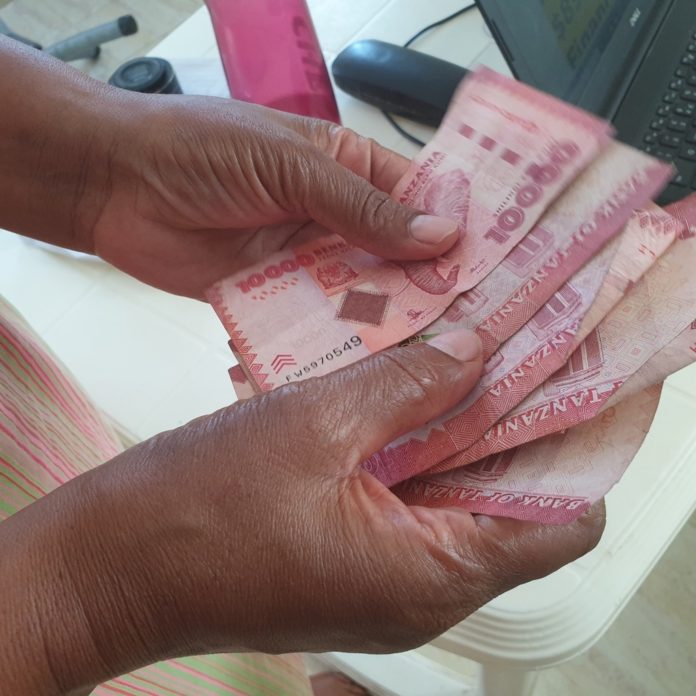Dar es Salaam — Africa losses roughly 88.6 billion USD every year in illicit financial flows (IFFs) including tax evasion and outright theft of resources, UN study shows.
The report, titled “Tackling illicit financial flows for sustainable development in Africa,” published a week ago by the United Nations Conference on Trade and Development (UNCTAD) suggests the IFFs is nearly as much as the combined total amount of development assistance, valued at $48 billion and annual foreign direct investment, pegged at $54 billion — the average African countries received between 2013 and 2015.
Hurdle To Development
Illicit financial flows are hindering African development by draining foreign exchange, reducing domestic resources, stifling trade, and macroeconomics stability thus worsening poverty and inequality.
“Illicit financial flows rob Africa and its people of their prospects, undermining transparency and accountability and eroding trust in African institutions,” says UNCTAD secretary-general Mukhisa Kituyi.
The report shows, almost half of the money that Africa loses is accounted for by the export of undervalued commodities such as gold, diamonds, and platinum.
For instance, the report shows, gold accounted for 77 percent of the total under-invoiced exports worth $40 billion.
Stopping The Flight
While tackling illicit flows is a priority for the United Nations, most African countries are yet to plug loopholes that facilitate illegal capital flight and commercial practices such as mis-invoicing of trade shipments, corruption, money laundering, and illegal markets and theft.
From 2000 to 2015, the total illicit capital flight from Africa amounted to $836 billion. Compared to Africa’s total external debt stock of $770 billion in 2018, this makes Africa a “net creditor to the world”, the report says.
IFFs related to the export of extractive commodities ($40 billion in 2015) are the largest component of illicit capital flight from Africa. Although estimates of IFFs are large, they likely understate the problem and its impact.
IFFs Undermine Africa’s Potential To Achieve The SDGs
IFFs represent a major drain on capital and revenues in Africa, undermining productive capacity, and Africa’s prospects for achieving the Sustainable Development Goals (SDGs).
For example, the report finds that, in African countries with high IFFs, governments spend 25% less than countries with low IFFs on health and 58% less on education.
Since women and girls often have less access to health and education, they suffer most from the negative fiscal effects of IFFs. Africa will not be able to bridge the large financing gap to achieve the SDGs, estimated at $200 billion per year, with existing government revenues and development assistance.
The report finds that tackling capital flight and IFFs represents a large potential source of capital to finance much-needed investments in infrastructure, education, health, and productive capacity.
Paul Akiwumi UNCTAD Director for Africa said IFFs is a shared problem between developing and developed countries.
According to him, extractive, telecom sectors, and financial services are more susceptible to IFFs.
Akiwumi said IFFs have huge social and economic consequences. They not only drain domestic financial resources but also they’re correlated with lower government spending on key development areas.
“Illicit activities are by their very nature inherently difficult to record due to the differences in legal and regulatory frameworks across jurisdictions,” he told Ubuntu Times.
According to him, efforts to curb IFFs are hampered by lack of statistics.
The report shows IFFs in Africa are endemic to certain high-value, low-weight commodities including gold.
Sharpening Skills And Knowledge
Out of $40 billion of IFFs derived from extractive commodities in 2015, 77% were concentrated in the gold supply chain, followed by diamonds (12%) and platinum (6%).
The report aims to equip African governments with knowledge to identify and evaluate risks associated with IFFs and foment solutions to curb IFFs and redirect the proceeds towards development projects.
Improving Cooperation
The report says African governments have not sufficiently reformed their taxation systems and enhance their national capacities to curb tax evasion and tackle proceeds from money laundering and recover stolen assets
Global Intervention
Tax revenues lost to IFFs are costly to Africa where public investment and spending on SDGs are lacking. In 2014 Africa lost approximately $9.6 billion to tax havens, equivalent to 2.5% of total tax revenue.
Local judicial authorities often lack the tools to challenge tax evasion at the core of the global shady financial system.
“Tackling illicit financial flows, however, will open the door to releasing much-needed investments in education, health, and productive sectors. African Governments — in concert with Africa’s private sector actors — should take the lead in strengthening stolen asset recovery, setting new standards for avoiding illicit flows and committing to more concerted actions to combat the negative impact of illicit financial flows on African economies,” says Kituyi.
Local analysts have called for global policymakers to devise measures that would deter billions of dollars from being siphoned out of the continent through money laundering and industrial-scale corporate tax avoidance.
“Africa is not a net debtor, rather a net creditor whose resources are drained through corruption, tax evasion, and outright theft. We need a new paradigm to reverse this trend,” said Bohera Lunogelo an analyst from a Dar es Salaam-based Economic and Social Research Foundation.

